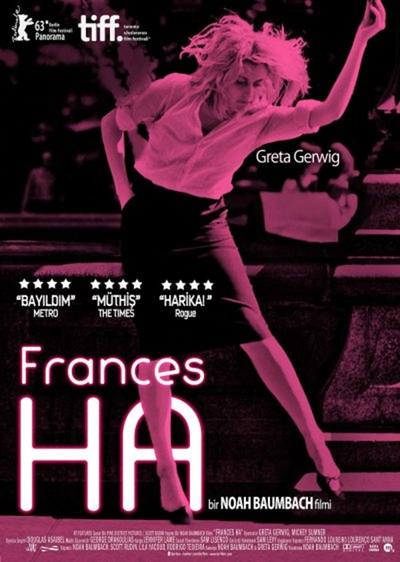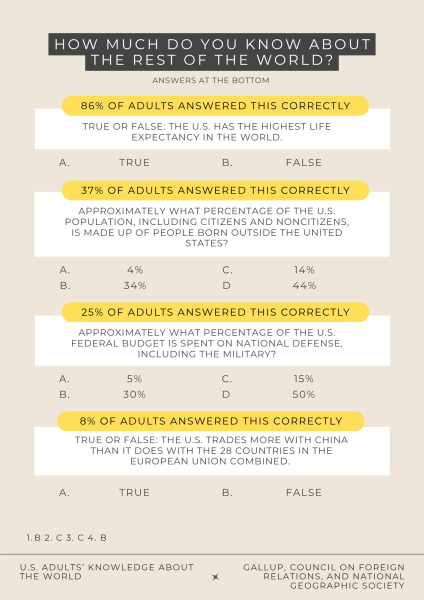Little-known gems of Netflix Instant
Netflix Instant gives subscribers access to thousands of independent titles. “Moonrise Kingdom” (2012) and “Frances Ha” (2013), two comedy-dramas which employ different ways of discussing similar truths, are among the most compelling and well-made films of this category.
“Moonrise Kingdom” is arguably one of the great films of the decade, featuring some of the wittiest characterization and finest cinematography in director Wes Anderson’s body of work. The film follows Sam and Suzy, two young lovers who start a manhunt throughout New England after fleeing their Rhode Island homes. One of the film’s charming qualities is the behavior of these characters, which amounts to something of a masquerade. Early on in the film, Suzy shows Sam a copy of “Coping With the Very Troubled Child,” a book owned by her mother. Several later scenes – which drew mild controversy upon initial release – show their participation in rather mature romantic situations.
Of course, this all has a purpose. Child psychologists have likened children, by and large, to actors attempting to play the roles of normal people in society. Sam and Suzy do much of what they do – that is, living in ways they perceive adults to – because of their wish to be accepted members of society rather than “problem children.” Yet, it is easy for those past the age of 10 or 11 to understand that they are putting on a show – and largely to convince themselves.
In this light, the cinematography – a masterpiece of intentional artificiality and whimsy – could be seen as a correlative for how Sam and Suzy attempt to act. Choosing old-fashioned techniques for visual effects such as miniatures and painted backgrounds, Anderson foregoes realism and makes the film’s aesthetics an ode to childhood.
Additionally, the imagery of “Moonrise Kingdom” is beautiful on its own, interpretations of Anderson’s purpose aside. The opening sequence introduces Suzy’s family and the rooms of her house in a flood of deep colors and camera trucks, accompanied by a Benjamin Britten orchestral piece. Each room corresponds to the playing of a different musical instrument, giving viewers the feeling of a tour through its space.
Over the past few years, critics’ acclaim for “Frances Ha” has differed from audiences’ reactions. The film aims for realism over the contrived plots of Hollywood entertainment, and could very well be seen as a feature-length narrative drift. It follows Frances Halladay, a New York woman who begins living in a Chinatown apartment after her best friend and roommate, Sophie, moves to Tribeca. “Frances Ha” faithfully chronicles her struggles in coming to terms with her life.
Greta Gerwig was rightfully nominated for a multitude of awards for her performance as the titular character. While her acting may initially appear understated, it constitutes one of the more genuine performances in modern independent cinema, eschewing overblown drama. Her performance, to put it simply, portrays the insecurities of a real person. The nuance with which Gerwig delivers various lines gives lovability to her character. When told to clean her room, she responds, “I’m not messy, I’m busy,” with a cadence suggesting defensiveness. When discussing her friend’s engagement she notes, “I’m too tall to marry,” her worried expression indicating she’s likely been self-conscious about her height her whole life. These lines reveal a subtle insecurity rooted in an inability to accept her place, but her delivery later on, of similarly deprecatory lines, shows us her ambivalence has faded. Her long-time friend had always pegged her as “undateable” – and after years of silence, asks her once more, “Still undateable?” to which she replies with a tilted head and a blushing smile, “Oh, yes, very undateable.”
Certain themes of “Moonrise Kingdom” permeate “Frances Ha” as well. The latter deals similarly with young adults’ facades. Frances continually does her best to convince her best friend Sophie that she is doing well, even in her hardest times. The experience of attempting to act like an adult comes through when Frances reveals she doesn’t have life insurance and quips, “I know, I’m not a real person yet.”
The shooting of “Frances Ha” in black and white was a wise choice; the cinematography evokes a feeling of novelty, and brings to mind the cinematography of Woody Allen’s “Manhattan” (1979). It’s fitting for a film whose events occur with a kind of mundanity. The work features no intricate plot, yet it is in this social realism, this purposefully ordinary nature, that the film succeeds. It asks viewers to follow a young woman drifting through a busy city, wishing to be relieved with the course of her own life – and this wish enables viewers to relate to the work.
Both “Moonrise Kingdom” and “Frances Ha” are triumphs in 2010s indie cinema, largely because they feel genuine. “Moonrise Kingdom” is a humorous faithful remembrance of childhood whimsy, and “Frances Ha” is a true-to-life story of a simple woman coming to terms with how she lives. Each film touches upon a facade of our lives, and is honest in its approach, whether it be distinctive dialogue and vivid cinematography or stripped-down acting performances. Both films are worthy of a viewing, or multiple viewings, on Netflix Instant.
Your donation will support the student journalists of Chantilly High School. Your contribution will allow us to cover our printing and annual website hosting costs.












